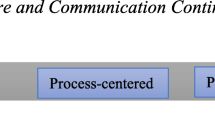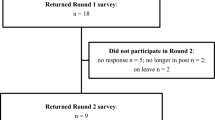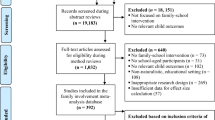The educational and counseling models are often touted as the two primary professional approaches to genetic counseling practice. Yet, research has not been conducted to examine how these approaches are used in practice. In the present study, we conducted quantitative communication analyses of BRCA1 genetic counseling sessions. We measured communication variables that represent content (e.g., a biomedical focus) and process (e.g., passive listening) to explore whether genetic counselor approaches are consistent with prevailing professional models. The Roter Interaction Analysis System (RIAS) was used to code 167 pre-test genetic counseling sessions of members of a large kindred with an identified BRCA1 mutation. Three experienced genetic counselors conducted the sessions. Creating composite categories from the RIAS codes, we found the sessions to be largely educational in nature with the counselors and clients devoting the majority of their dialogue to providing biomedical information (62 and 40%, respectively). We used cluster analytic techniques, entering the composite communication variables and identified four patterns of session communication: Client-focused psychosocial, biomedical question and answer, counselor-driven psychosocial, and client-focused biomedical. Moreover, we found that the counselors had unique styles in which they combined the use of education and counseling approaches. We discuss the importance of understanding the variation in counselor communication to advance the field and expand prevailing assumptions.


Similar content being viewed by others
REFERENCES
Ad Hoc Committee on Genetic Counseling Report to the American Society of Human Genetics. (1975). Genetic counseling. Am J Hum Genet, 27, 240–242.
Bartels, D. M., LeRoy, B. S., McCarthy, P., et al. (1997). Nondirectiveness in genetic counseling: A survey of practitioners. Am J Med Genet, 72, 172–179.
Baty, B. J., Venne, V. L., McDonald, J., et al. (1997). BRCA1 testing: Genetic counseling protocol development and counseling issues. J Genet Counsel, 6, 223–244.
Beisecker, A. E., & Beisecker, T. D. (1990). Patient information-seeking behaviors when communicating with doctors. Med Care, 28, 19–28.
Bensing, J. M., Roter, D. L., & Hulsman, R. L. (2003). Communication patterns of primary care physicians in the United States and the Netherlands. JGIM, 18, 335–342.
Bernhardt, B. A. (1997). Empirical evidence that genetic counseling is directive: Where do we go from here? Am J Hum Genet, 60, 17–20.
Bernhardt, B. A., Biesecker, B. B., & Mastromarino, C. L. (2000). Goals, benefits, and outcomes of genetic counseling: Client and genetic counselor assessment. Am J Med Genet, 94, 189–197.
Biesecker, B. B. (1998). Future directions in genetic counseling: Practical and ethical considerations. Kennedy Inst Ethics J, 8, 145–160.
Biesecker, B. B. (2003). Back to the future of genetic counseling: Commentary on “Psychosocial genetic counseling in the post-nondirective era.” J Genet Counsel, 12, 213–217.
Biesecker, B. B., & Peters, K. F. (2001). Process studies in genetic counseling: Peering into the black box. Am J Med Genet (Semin Med Genet), 106, 191–198.
Botkin, J. R., Croyle, R. T., Smith, K. R., et al. (1996). A model protocol for evaluating the behavioral and psychosocial effects of BRCA1 testing. JNCI, 88, 872–882.
Brent, E. E., & Beckett, D. E. (1986). Common response patterns of medical students in interviews of hospitalized patients. Med Care, 24, 981–989.
Butow, P. N., & Lobb, E. A. (2004). Analyzing the process and content of genetic counseling in familial breast cancer consultations. J Genet Counsel, 13, 403–424.
Clarke, A., Parsons, E., & Williams, A. (1996). Outcomes and process in genetic counseling. Clin Genet, 50, 462–469.
Del Piccolo, L., Mazzi, M., Saltini, A., et al. (2002). Inter and intra individual variations in physicians’ verbal behaviour during primary care consultations. Soc Sci Med, 55, 1871–1885.
Ellington, L., Roter, D., Dudley, W. N., et al. (2005). Communication analysis of BRCA1 genetic counseling. J Genet Counsel.
Everitt, B. S., Landau, S., & Leese, M. (2001). Cluster Analysis (4th ed.). London: Arnold.
Farrara, K. (1994). Therapeutic ways with words. New York: Oxford.
Ford, S., Fallowfield, L., & Lewis, S. (1996). Doctor–patient interactions in oncology. Soc Sci Med, 42, 1511–1519.
Hallowell, N., Murton, F., Statham, H., et al. (1997). Women's need for information before attending genetic counseling for familial breast or ovarian cancer: A questionnaire, interview, and observational study. Br Med J, 314, 281.
Kessler, S., & Jacopini, A. G. (1982). Psychological aspects of genetic counseling. II: Quantitative analysis of a transcript of a genetic counseling session. Am J Med Genet, 12, 421–435.
Kessler, S. (1981). Psychological aspects of genetic counseling: Analysis of a transcript. Am J Med Genet, 8, 137–153.
Kessler, S. (1992). Psychological aspects of genetic counseling. VII. Thoughts on directiveness. J Genet Counsel, 1, 9–17.
Kessler, S. (1997a). Genetic counseling is directive? Look again. Am J Hum Genet, 61, 466–467.
Kessler, S. (1997b). Psychological aspects of genetic counseling. XI. Nondirectiveness revisited. Am J Med Genet, 72, 164–171.
Kessler, S. (1997c). Psychological aspects of genetic counseling. IX. Teaching and counseling. J Genet Counsel, 6, 287–295.
Lewis, L. J. (2002). Models of genetic counseling and their effects on multicultural genetic counseling. J Genet Counsel, 11, 287–295.
Lobb, E. A., Butow, P. N., Barratt, A., et al. (2004). Communication and information-giving in high-risk breast cancer consultations: Influence on patient outcomes. Br J Cancer, 90, 321–327.
Lobb, E. A., Butow, P. N., Meiser, B., et al. (2002). Tailoring communication in consultations with women from big risk breast cancer families. Br J Cancer, 87, 502–508.
Lobb, E., Butow, P., Baratt, A., et al. (2005). Differences in individual approaches: Communication in the familial breast cancer consultation and the effect on patient outcomes. J Genet Counsel, 14, 43–53.
McCarthy Veach, P., Bartels, D. M., & LeRoy, B. S. (2002). Commentary on genetic counseling–A profession in search of itself. J Genet Counsel, 11, 187–191.
Michie, S., Bron, F., Bobrow, B., et al. (1997). Nondirectiveness in genetic counseling: An empirical study. Am J Hum Genet, 60, 40–47.
Pieterse, A. H., van Dulmen, A. M., Ausems, M. G., et al. (2005). Communication in cancer genetic counselling: Does it reflect counselees’ previsit needs and preferences? Br J Cancer, 92, 1671–1678.
Roter, D. (2002). The Roter method of interaction process analyses. http://www.rias.org/manual.html.
Roter, D. L., Stewart, M., Putnam, S. M., et al. (1997). Communication patterns of primary care physicians. JAMA, 277, 350–356.
Sewitch, J. J., Leffondre, K., & Dobkin, P. L. (2004). Clustering patients according to health perceptions.Relationships to psychosocial characteristics and medication nonadherence. J Psychosom Res, 56, 323–332.
SPSS. (2004). SPSS version 12. Chicago: SPSS INC.
Street, R. L. Jr. (1991). Information-giving in medical consultations: The influence of patients’ communicative styles and personal characteristics. Soc Sci Med, 32, 541–548.
Suter, S. M. (1991). Value neutrality and nondirectiveness: Comments on “Future directions in genetic counseling.” Kennedy Inst Ethics J, 8, 161–163.
Weil, J. (2003). Psychosocial genetic counseling in the post-nondirective era: A point of view. J Genet Counsel, 12,199–211.
White, M. T. (1997). “Respect for autonomy” in genetic counseling: An analysis and a proposal. J Genet Counsel, 6, 297–313.
Wolff, G., & Jung, C. (1995). Nondirectiveness and genetic counseling. J Genet Counsel, 4, 3–25.
Wolraich, M. L., Albanese, M., Stone, G., et al. (1986). Medical Communication behavior system, an interactional analysis system for medical interactions. Med Care, 24, 891–903.
ACKNOWLEDGMENTS
This study was funded by the National Human Genome Research Institute (R03HG002359; Principal Investigator, Lee Ellington). We are grateful to Renn Upchurch and Ryan Beveridge for their coding of all the data and to Amiee Maxwell for her organization and insights. Further, we wish to thank two reviewers for their very thoughtful comments. Last but not least, we would like to thank the participants in this research project for allowing us to audiotape their sessions.
Author information
Authors and Affiliations
Corresponding author
Rights and permissions
About this article
Cite this article
Ellington, L., Baty, B.J., McDonald, J. et al. Exploring Genetic Counseling Communication Patterns: The Role of Teaching and Counseling Approaches. J Genet Counsel 15, 179–189 (2006). https://doi.org/10.1007/s10897-005-9011-6
Published:
Issue Date:
DOI: https://doi.org/10.1007/s10897-005-9011-6




